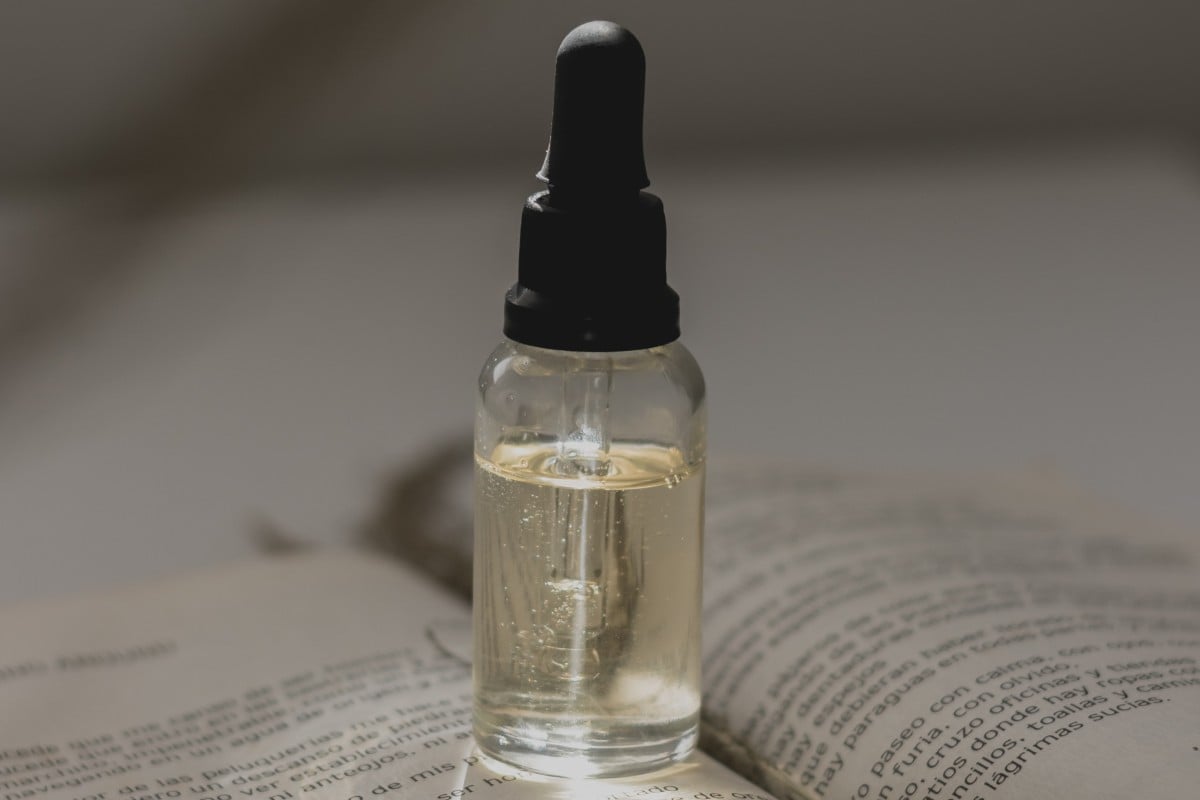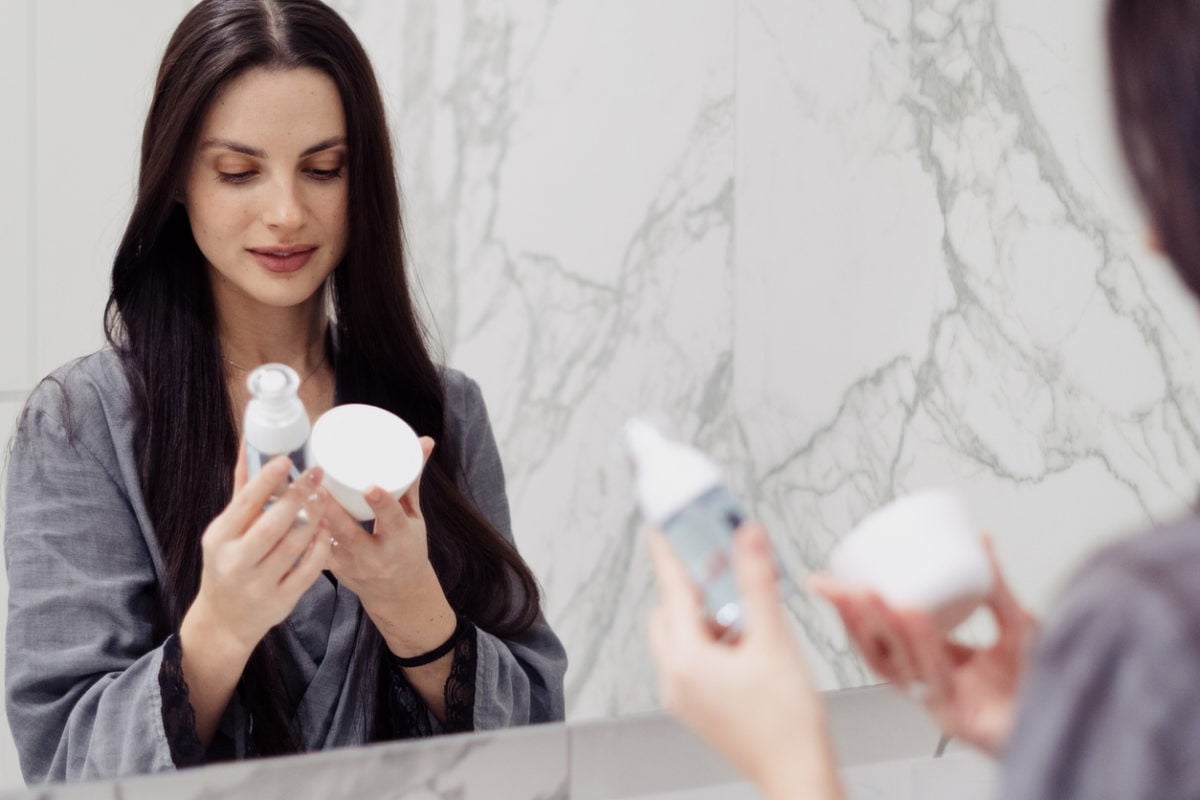This article has been reviewed by Dr. Meg Sison, a board-certified dermatologist practicing both medical and cosmetic dermatology.
Exfoliation promotes glowing skin by removing dead cells. However, as good as it is, exfoliating can also prove to be a double-edged sword that comes with some caveats if done too often or with products that are too harsh on your skin. Exfoliating is one of those cases where less is more, and while it brings a ton of benefits to your skin, overdoing it will only give you a skin nightmare. To set the record straight for everyone, we picked the brain of board-certified dermatologist Meg Sison and did extensive research to find all the telltale signs of over-exfoliation and how to get your skin back from it.
What is exfoliation?
Exfoliation is the process of getting rid of dead skin cells that accumulate on the surface of your skin. These cells can make your skin look dull, dry, and uneven, and can also clog your pores and cause acne. There are different forms to exfoliate your skin, such as using chemical acids (like glycolic acid), fruit enzymes, grainy scrubs, or tools (like brushes).
Exfoliating your skin regularly brings a whole host of benefits. However, exfoliating too often or too harshly can damage your skin and cause irritation. The key is to find the right exfoliation method and frequency for your skin. A general rule of thumb is to exfoliate two to three times a week for normal to oily skin and once a week for dry or sensitive skin.
What is over-exfoliation?
Over-exfoliation happens when you either exfoliate too often, use products that are too harsh for your skin, or make aggressive skincare cocktails, such as using alpha-hydroxy acids and retinol at the exact same time. Over-exfoliation dries out the skin, weakens the skin’s protective barrier, and leaves the skin vulnerable to external damage.
Now, this begs the big question: how do I know if I am over-exfoliating?
Signs you’re over-exfoliating your skin
If your skin is dry, flaky, red, or irritated, or you experience more frequent breakouts, sensitivity, or a tight texture, you’re over-exfoliating your skin. Read on to learn more and find out how to treat over-exfoliated skin.
Your skin is more dry, sensitive, and tight
Dry, sensitive, and tight skin are clear signs of over-exfoliation. When you’re exfoliating too much, you’re basically sabotaging your skin’s natural barrier. Exfoliation, particularly through chemical or physical means, removes the outermost layer of the skin. This layer serves as a protective barrier, holding moisture into the skin and fighting external aggressors. Over-exfoliation compromises this barrier. So what happens? Your skin starts losing moisture and becomes more vulnerable to external damage.
While some redness and flakiness are normal after exfoliation, if it persists and your skin has terrible reactions to products it usually didn’t react to, it is most likely a sign you have over-exfoliated. This signals the need for a more balanced and gentle skincare routine to allow the skin to recover and rebuild its protective barrier.
Excess sebum
When the skin loses too much moisture, the sebaceous glands produce more sebum to compensate for the loss, leading to excess sebum, clogged pores, and breakouts. So, next time you wonder why your skin is oily all of a sudden, consider over-exfoliation a reason.
Blackheads and breakouts
Excessive exfoliation unbalances the skin’s microbiome, the community of beneficial microorganisms that maintain skin health. This allows bad bacteria to enter and proliferate, leading to inflammation and breakouts. This cycle of damage and compensatory responses turns the skin into a breeding ground for blackheads and pimples.
Foundation flakes off
Since over-exfoliation often leads to dry and flaky skin, it’s no surprise you don’t get to have the perfect canvas for your foundation. When skin is dry and peels off, it’s difficult for your foundation to layer smoothly and stay put throughout the day. Most times you could blame the foundation or your primer when it could just be you over-exfoliating.
What does over-exfoliated skin look like?
Most often, over-exfoliated skin appears red and shiny. And it’s not the glowy, radiant shine we’re talking about here; it is an unnatural sheen (almost waxy) that indicates the skin has lost essential moisture. Also, over-exfoliated skin can look flakey, feel tight, and uncomfortable.
How to heal over-exfoliated skin
First, quit using exfoliants until the skin recovers, which can take anywhere from two weeks to a month. Also, don’t use ingredients that can cause dryness or peeling, such as retinol or a high concentration of vitamin C. Products with drying alcohol (like alcohol denat or SD alcohol), cleansers with sulfates, synthetic fragrances are also a no-no until your skin heals.
Instead, focus on products that hydrate the skin and restore the skin’s natural barrier function. Simply put, look out for the following ingredients:
- Hyaluronic acid: hydrates and speeds up cell regeneration
- Squalane: softens the skin and ease inflammation
- Ceramide: increases moisture retention and rebuilds the barrier
- Peptides: induce collagen production
- Cholesterol and fatty acids: restore the skin’s barrier
- Centella asiatica: encourages skin repair
- Snail mucin: hydrates, repairs, and reinforces the barrier
If you don’t know where to start, here you can find some good products to restore the skin’s barrier and soothe the signs of over-exfoliation.
As a last measure, when you’re dealing with overly exfoliated skin, you should whittle down your routine as follows:
- Gentle, pH-balancing cleanser sans sulfates
- A rich, non-comedogenic moistuzier
- Sunscreen with at least 30 SPF (in AM)
Frequently asked questions
- How long does it take to recover from over-exfoliation?
Depending on how much harm was caused, age, and skincare routine, recovering from over-exfoliation can take anywhere from one week to six weeks or more.
- Should I moisturize over exfoliated skin?
Using a gentle moisturizer that loads repairing ingredients, like ceramides, peptides, and cholesterol, and skips harsh compounds helps the skin recoup resilience faster and keeps it protected against external foes.
- Can over-exfoliation cause breakouts?
Over-exfoliation can cause the sebaceous glands to produce more sebum, leading to breakouts. Also, exfoliating too much can leave the skin unshielded and inflamed, which can also increase the chances of breakouts occurring.
- What is the fastest way to heal over exfoliated skin?
Quit exfoliants and harsh compounds, and pare down your skincare routine to a gentle, non-foaming cleanser and a gentle repairing moisturizer.





